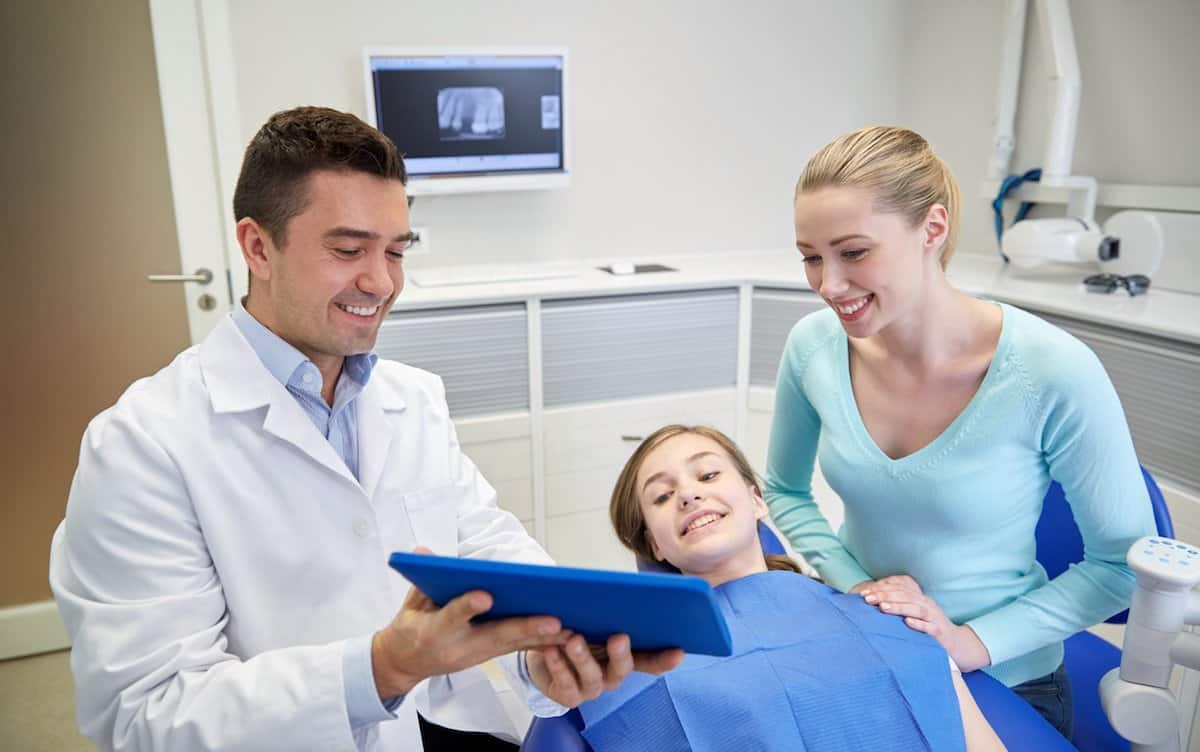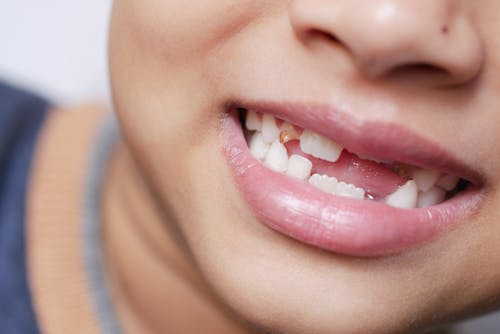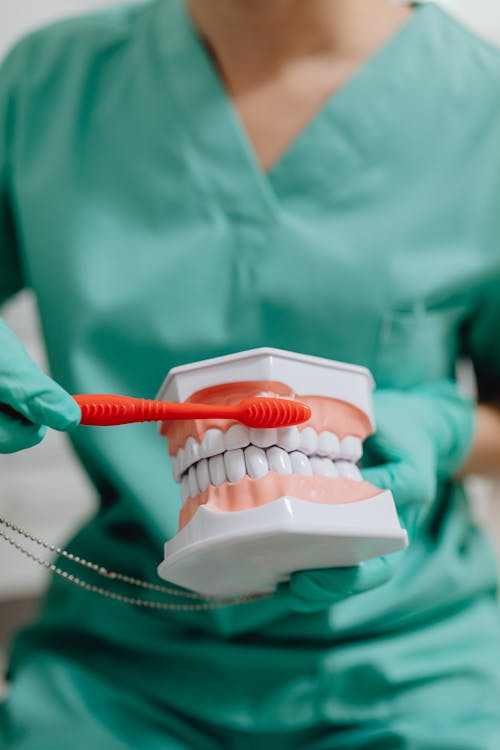
21 Aug What Is The Most Common Dental Emergency?
Dental Emergencies Can Happen At Any Time
It’s no secret that having a good dentist is important. Not only do they help keep your teeth healthy, but they can also help you avoid serious dental problems down the road. But what makes a good dentist? Here are a few things to look for:
- A good dentist will take the time to get to know you and your mouth. They will ask about your dental history and any concerns you may have. They should also perform a thorough examination of your teeth and gums.
- A good dentist will use the latest technology and techniques. This means they will be up-to-date on the latest treatments and procedures. They should also be using state-of-the-art equipment.
- A good dentist will be gentle and compassionate. They should make you feel comfortable during your appointment. They should also take the time to explain everything they are doing and why.
- A good dentist will be affordable. They should offer a variety of payment options to fit your budget. They should also be willing to work with you if you have dental insurance.
- A good dentist will have a great bedside manner. This means they will be friendly and easy to talk to. They should make you feel at ease, even if you’re nervous about your appointment.
Having a dentist that can meet all of these criteria can be critical because, although we don’t like to think about it, there are times when we may find ourselves in dental emergencies. Yes, you may think that there really isn’t a fear of that because you are careful when it comes to what you put in or near your mouth, but some things just can’t be avoided.

What Do You Mean By Dental Emergency?
There is a wide range in dental issues that we may consider an emergency, but when we are assessing the issue we are having, we have to make sure that this is a real emergency. There are a few key questions you should ask yourself if you think you may have a dental emergency:
- Is there bleeding? If so, how much and for how long? Is the bleeding coming from a specific tooth or area?
- Are you in pain? What kind of pain are you experiencing? Is it constant or intermittent? Does it radiate to other parts of your head or body?
- Do you have swelling? Is the swelling localized to one area or is it present throughout your face or mouth?
- Do you have any changes in your bite or jaw function? Can you still comfortably open and close your mouth? Are you able to chew food normally?
- Do you have any loose teeth? Do any of your teeth feel like they may be about to fall out?
- Do you have anything caught in your teeth? Do you have food or another object stuck between your teeth?
- Are your gums red, swollen, or bleeding?
Asking yourself these questions can help you decide if you can wait and make an appointment, or if you need to get immediate assistance. You also may be able to assess if you have any at-home care that you can do while getting ahold of your dental provider.
What are some of the common dental emergencies?
If you have a dental emergency, it’s important to seek treatment as soon as possible. This is because dental problems can often lead to other health issues if they’re not treated right away. For example, an abscessed tooth can spread the infection to other parts of the body, and a cracked tooth can cause nerve damage.

Some of the most common dental emergencies are:
- Toothaches: A toothache is usually a sign of an underlying problem, such as decay or an infection. If you have a toothache, rinse your mouth with warm water and take over-the-counter pain medication if needed. If the pain persists, see your dentist as soon as possible.
- Bleeding gums: Bleeding gums can be a sign of gingivitis, which is an early stage of gum disease. If your gums are bleeding, brush and floss your teeth regularly, and see your dentist if the bleeding persists.
- Knocked-out tooth: If you have a tooth that has been knocked out, try to put it back in place if possible. If you can’t do this, store the tooth in milk or saliva until you can get to a dentist.
- Broken tooth: If you have a broken tooth, rinse your mouth with warm water and apply a cold compress to the area to reduce swelling. See your dentist as soon as possible to have the tooth repaired.
- Chipped tooth: If you have a small chip in your tooth, you may not need to see a dentist right away. However, if the chip is large or if the tooth is bleeding, you should seek medical attention immediately.
- Abscessed tooth: An abscessed tooth is a serious infection that can spread to other parts of the body if left untreated. If you have an abscessed tooth, see your dentist immediately.
- Jaw pain: Jaw pain can be a sign of TMJ disorder or other dental problems. If you have jaw pain, see your dentist to find out the cause.
What Is The Most Common Dental Emergency?
Toothaches are one of the most common dental emergencies, but they don’t always require emergency treatment. In many cases, toothaches can be prevented by practicing good oral hygiene and taking care of your teeth.
There are many different causes of toothaches, but the most common is decay. When tooth decay occurs, it creates a hole in the tooth that allows bacteria to enter and irritate the nerve. This can cause severe pain and discomfort.
Another common cause of toothaches is gum disease. Gum disease is an infection of the gums that can damage the tissue and bone supporting the teeth. If left untreated, gum disease can lead to tooth loss.
To avoid toothaches, it’s important to practice good oral hygiene. This means brushing your teeth twice a day, flossing daily, and using mouthwash. It’s also important to see your dentist regularly for checkups and cleanings.
If you do experience a toothache, there are several things you can do to relieve the pain. over-the-counter painkillers like ibuprofen or acetaminophen can help. You can also apply a cold compress to the outside of your cheek to reduce inflammation.
If the pain is severe or lasts more than a few days, it’s important to see your dentist. They will be able to determine the cause of the pain and provide treatment. In some cases, dental emergencies may require antibiotics or even surgery. However, most toothaches can be treated with simple at-home care.
Be Prepared!

Dental emergencies can happen at any time, and it’s important to be prepared with a good dentist. There are a few things you can do to make sure you’re prepared in case of a dental emergency.
First, find a good dentist that you trust and feel comfortable with. This is important because you want to make sure you’re getting the best possible care in an emergency situation.
Second, be sure to keep up with your regular dental appointments and cleanings. This will help to prevent any serious problems from developing in the first place.
Third, if you do experience a dental emergency, don’t hesitate to call your dentist right away. Time is of the essence when it comes to these kinds of situations, and the sooner you get help, the better.
Dental emergencies can be scary, but they don’t have to be. With a little preparation and some knowledge, you can be prepared for anything. So take the time to find a good dentist and make sure you’re keeping up with your oral hygiene. That way, you’ll be ready for anything that comes your way.


Sorry, the comment form is closed at this time.